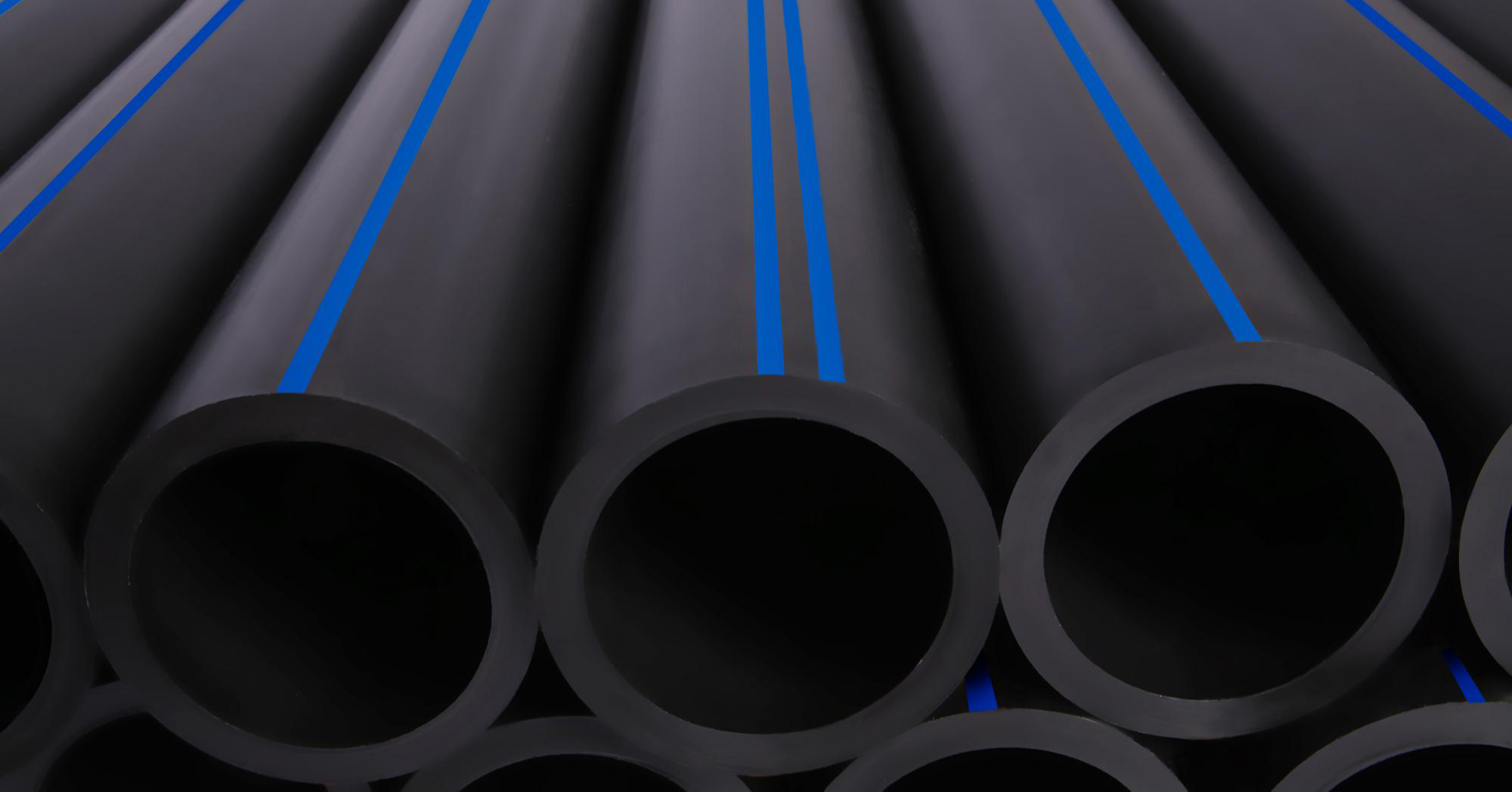Important Factors of custom hdpe pipe manufacturing Midland TX for Specialized Industries
Comprehending the Key Advantages of HDPE Pipe for Water and Wastewater Management
Using HDPE pipeline in water and wastewater monitoring provides various benefits that warrant factor to consider. Its exceptional durability and lengthy life-span make it a favored option for numerous jobs. Furthermore, the material's resistance to corrosion and chemical damage enhances its reliability in numerous settings. However, the advantages expand past simply long life and resistance. Exploring its cost-effectiveness and ecological influence discloses a lot more compelling reasons for its extensive fostering in modern-day framework
Outstanding Toughness and Durability

HDPE pipe stands apart for its remarkable sturdiness and durability, making it a recommended option in water monitoring systems. Created from high-density polyethylene, these pipes can withstand substantial pressure and stress, guaranteeing reliable efficiency in time. Their durable nature permits them to endure extreme environmental conditions, including temperature fluctuations and soil motions, which can create other materials to fail.
The life-span of HDPE pipelines commonly surpasses half a century, offering a cost-effective service for districts and sectors alike. Furthermore, the product's light-weight residential properties streamline installation, reducing labor expenses and timeframes. This resilience minimizes the need for constant repair work or replacements, additionally enhancing its economic charm.
In water monitoring applications, the integrity of HDPE pipes indicates less disturbances and boosted service connection, making them indispensable to sustainable framework advancement. The combination of toughness and long life solidifies HDPE's role as a keystone in efficient water management remedies.

Resistance to Rust and Chemical Damages
While many products catch deterioration and chemical damage in time, HDPE pipes display exceptional resistance, making them ideal for different water monitoring applications. This durability originates from the molecular framework of high-density polyethylene, which is naturally non-reactive and does not corrode like metals or deteriorate from direct exposure to extreme chemicals. As a result, HDPE is very reliable in environments with hostile materials, such as wastewater systems that may consist of acids, bases, and natural solvents.
Additionally, HDPE pipes can hold up against environmental elements such as soil level of acidity and saline conditions, even more boosting their viability for diverse applications (custom hdpe pipe manufacturing Midland TX). Their capability to maintain architectural stability in time reduces the threat of leaks and failures, which is crucial in making sure the security and reliability of water distribution and wastewater management systems. Subsequently, the resistance to deterioration and chemical damages substantially adds to the general effectiveness and long life of HDPE piping services
Cost-Effectiveness and Economic Benefits
When considering the economic effects of water management systems, the cost-effectiveness of HDPE pipelines becomes obvious. These pipes use reduced installation and maintenance expenses contrasted to typical materials like steel or concrete. Their light-weight nature simplifies transport and installation, resulting in reduced labor expenditures. Furthermore, HDPE pipes display a long life-span, commonly exceeding 50 years, which converts to fewer substitutes and long-lasting financial savings.
In addition, the resistance of HDPE to deterioration and chemical damages minimizes the demand for costly repairs and replacements. The pipes also support efficient water flow, lowering power expenses related to pumping systems. By mitigating leakages and water loss, HDPE pipelines contribute to considerable financial advantages for districts and industries alike. On the whole, the initial financial investment in HDPE piping can generate considerable financial returns over the life expectancy of the water monitoring system, making it a prudent choice for lasting facilities development.
Ecological Sustainability and Minimized Impact

Convenience and Flexibility in Installment
As a result of their unique buildings, HDPE pipelines offer remarkable flexibility and versatility in installment, making them suitable for a wide variety of applications. Their lightweight nature enables simpler handling and transportation, reducing labor prices and installment time. HDPE pipes can be curved and formed to fit different terrains and task demands, which is especially helpful in testing environments.
Additionally, their resistance to deterioration and chemical damages enables setup in diverse setups without the requirement for specialized protective finishings. The ability to fuse joints develops a constant, leak-free system, improving the overall honesty and integrity of the setup. HDPE's versatility also fits ground activity, minimizing the danger of damages in areas prone to moving dirt. Generally, these attributes make HDPE pipes not only versatile however also a recommended selection for water and wastewater management systems.
Often Asked Concerns
Exactly How Does HDPE Pipeline Compare to PVC in Water Monitoring Applications?
HDPE pipeline provides remarkable versatility, resistance to corrosion, and resilience contrasted to PVC. Its lighter weight facilitates simpler setup, while its long lifespan decreases replacement costs, making HDPE a favored choice in water management applications.
What Is the Life Expectancy of HDPE Piping Under Regular Problems?
Under regular problems, HDPE pipelines can have a life expectancy ranging from 50 to 100 years. Their toughness and resistance to rust contribute to their long-lasting performance in numerous applications, making them a dependable choice for infrastructure.
Are HDPE Pipes Recyclable After Their Solution Life?
Yes, HDPE pipelines are recyclable after their life span. Pipe Supplier American Plastics Midland. They can be refined and repurposed right into new products, greatly reducing ecological effect and promoting sustainability within the industry, making them an environmentally friendly choice for piping remedies
What Is the Setup Process for HDPE Pipes?
The installment procedure for HDPE pipelines includes site preparation, trenching, pipeline blend or mechanical joining, backfilling, and stress screening. Proper strategies assure a sturdy and effective system for carrying water and wastewater efficiently.
Can HDPE Piping Be Used for Both Potable and Non-Potable Water Solutions?
Yes, HDPE pipes can be made use of for both drinkable and non-potable water systems. Their convenience, toughness, and resistance to corrosion make them appropriate for numerous applications, making sure safe and reliable transport of water in various contexts.